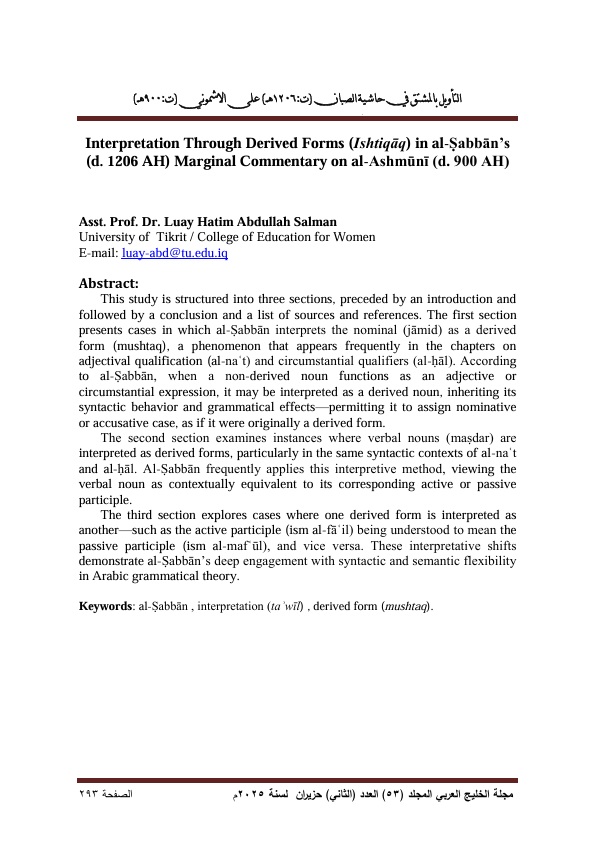Interpretation Through Derived Forms (Ishtiqāq) in al-Ṣabbān’s (d. 1206 AH) Marginal Commentary on al-Ashmūnī (d. 900 AH)
Keywords:
al-Ṣabbān , interpretation (taʾwīl) , derived form (mushtaq)Abstract
This study is structured into three sections, preceded by an introduction and followed by a conclusion and a list of sources and references. The first section presents cases in which al-Ṣabbān interprets the nominal (jāmid) as a derived form (mushtaq), a phenomenon that appears frequently in the chapters on adjectival qualification (al-naʿt) and circumstantial qualifiers (al-ḥāl). According to al-Ṣabbān, when a non-derived noun functions as an adjective or circumstantial expression, it may be interpreted as a derived noun, inheriting its syntactic behavior and grammatical effects—permitting it to assign nominative or accusative case, as if it were originally a derived form.
The second section examines instances where verbal nouns (maṣdar) are interpreted as derived forms, particularly in the same syntactic contexts of al-naʿt and al-ḥāl. Al-Ṣabbān frequently applies this interpretive method, viewing the verbal noun as contextually equivalent to its corresponding active or passive participle.
The third section explores cases where one derived form is interpreted as another—such as the active participle (ism al-fāʿil) being understood to mean the passive participle (ism al-mafʿūl), and vice versa. These interpretative shifts demonstrate al-Ṣabbān’s deep engagement with syntactic and semantic flexibility in Arabic grammatical theory.




